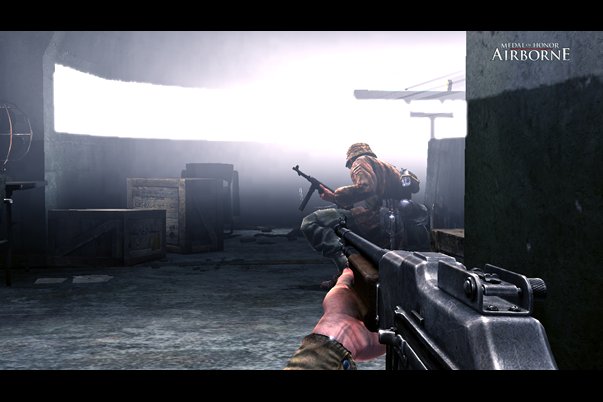Interview with Medal of Honor: Airborne's Executive Producer
Patrick Gilmore dissects EA's war machine
What is it about WWII that keeps gamers coming back, that keeps MoH profitable?
Gilmore: It was a world war, first of all. It touched everybody and still connects with a large variety of people. And it was a moment in history where the lines between good and evil were crisply drawn - that’s never happened before or since with such clarity. In the case of Medal of Honor it’s also the scope of it. These were missions on an epic scale, not with a hundred or a thousand guys but with tens of thousands. Market Garden was the largest single airdrop in history with over 20,000 drops... There’s nothing else in history that compares with that - the population of an entire town jumping out of aircraft and going to war. It’s a wellspring of ideas.
And yet Allied Assault is still regarded as the best MoH of all. Why is that?
Gilmore: It did a couple of things, as did Frontline [its console companion] to a degree. They were the first games to feature the Normandy beach scene, made the quintessential WWII moment by Saving Private Ryan. So it was really a breakthrough that a game could actually put you on that beach. And Allied Assault was a crafted experience; it delivered the story, the characters, and the combat and non-combat scenarios. War’s not just a parade of enemies, it really is about the language guys share when they’re on the battlefield and the way you give orders or receive objectives. Allied Assault did a great job of delivering insight into that whole combat experience.

Weekly digests, tales from the communities you love, and more


